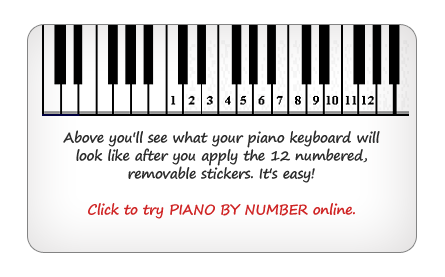Compare Concert and Child Pianists

If you compare concert and child pianists, you will find many similarities, even though their skills are wildly different. For a piano virtuoso, there was a set of steps, somewhere, that you followed in order to reach that level.
I find it remarkable that as I practice very difficult music, there is a parallel with the way children learn their beginning lessons. First, real pianists get bored with what they are playing many times. Kids are the same, except that their attention span may be measured in minutes, not months.
Piano Is Easy
Persistence VS Variety
So the next time a child looks bored with repeating a passage, do what you would do with yourself. Determine your level for withstanding boredom at that moment, and then move on to a more enjoyable activity. After you persist, you'll get burned out, so seek variety.
Come back to a problem when you’re fresh. For example, suppose you are trying to teach fingering to children. You will likely notice a threshold which signals that the going has become too rough, and the child needs a break. Obey the impulse to take a break. After shifting gears and tone, come back very quickly and try again. Quickly move on to yet something else.
If you compare concert pianists and child pianists, you will find the process is very similar.
Problem Areas For Kids
There are certain aspects of beginning piano that children find tedious, and more so the younger the child. Here are the problem areas:
Fingering
Reading Music
Rhythm
You may laugh and say, “Well, fingering, reading music and rhythm are all that music is. What exactly do you teach if you don’t teach that?”
Teach Everything Besides Reading Music
But to a child just starting out at the piano, “Jingle Bells” is Jingle Bells, even if played with the wrong fingers, not reading music, and with no rhythm at all. Just to play the notes, at first, is a huge accomplishment, and you should be careful before going further.
Having plunked out the notes, in the above hypothetical “Jingle Bells” situation, you might embark on a study of fingering. Let me give you a warning first: gain a foothold on fingering in the abstract before you apply it to a specific song. If you attempt to apply the fingering lesson to Jingle Bells too soon, the child most likely has only enough focus to find the notes.
Their brain is most likely not developed enough to worry about what finger to use. If they fail to finger Jingle Bells properly, it's your fault, not theirs. You should have waited and gotten a foothold on fingering elsewhere first. Better to engage in fingering games entirely outside of the song being learned. Here’s one that I use first.
Threesies Fingering And Rhythm Game
Take the child’s first three fingers of the right hand. Place them on any three white keys. Assuming you have selected the key numbered 1 (Middle C) the game could go as follows:
1 2 3, 2 3 4, 3 4 5, 4 5 6, etc.
“Play the three keys in a row.” You will have to actually push their fingers gently at the right time so they get the idea. They will not understand without you physically moving the fingers so that they feel the motion from the inside of their hand. Abstractions are irrelevant to younger children. Play 123, 234, 345,456 567, etc.
What To Expect Of A Six Year Old
What do you expect of a six year old? Think about this next time you are about to get impatient with a child at the piano. Real pianists don’t expect perfection or even comfort for years in a specific piece of music.
With children, it is up to you, the teacher. You have to make the steps so easy, and cleverly arranged, that failure is all but impossible. Most of all, you must be aware of which skills are age related, so that you can quickly determine which skill that particular child is ready to learn. Children learn easily when they are good and ready to, on their own terms.
REFERENCES
Prodigies
If Your Child Is A Piano Prodigy
Musical Genius
Einstein’s Piano
Einstein’s Gypsy Violin
Children’s Hidden Piano Talents
Finding The Path To A Child’s Piano Talent
What Exactly Is Talent In Children’s Piano?
Piano Hands
Kids Piano Talent May Not Be Obvious





